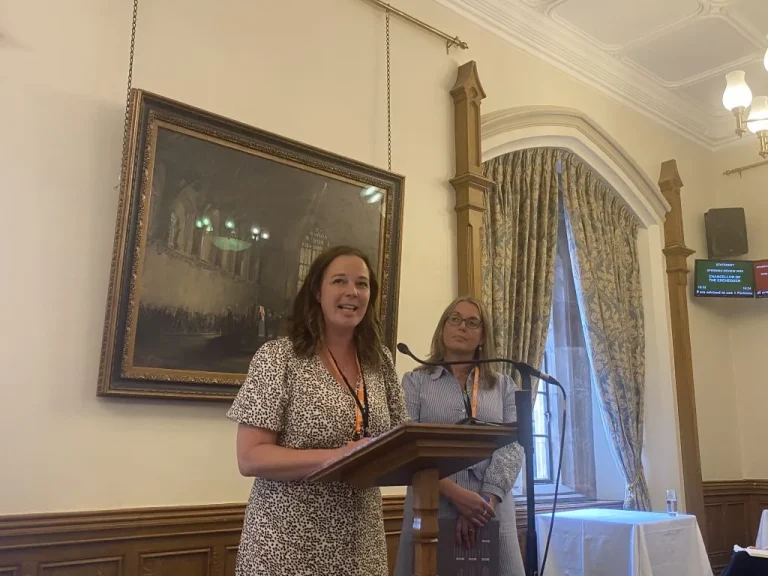Tackling the “postcode lottery” of specialist stoma care nursing services, embedding bladder and bowel content in nurse education and the ongoing success of a project preventing toileting-related falls were all discussed this week in parliament.
Continence nurse specialists met with campaigners and MPs during a meeting of the All-Party Parliamentary Group for Bladder and Bowel Continence Care.
“To my patients, the impact of not having specialist services is catastrophic”
Natasha Rolls
The group convened at the House of Commons for the first time since it was re-registered as an APPG and the meeting was led by its new chair Jodie Gosling, Labour MP for Nuneaton.
The APPG heard how a project that has been promoting decaffeinated drinks has taken off since its inception.
Nursing Times reported last year that several hospital trusts and care home providers in England had been piloting serving decaffeinated drinks to patients as the default option.
The potential benefits of doing so were significant, reducing falls related to rushing to the toilet and lower continence pad usage.
The ‘taste the difference challenge’ was pioneered in 2021 by continence nurse specialists at University Hospitals of Leicester NHS Trust, and its success led to the programme being rolled out in some care homes.
Sarah Coombes, the continence nurse specialist who came up with the project, told the APPG that she had now supported 70 hospital trusts over the last four years.
More recently, she noted, an organisation in Australia had also rolled out the pilot.
“It’s a project that just keeps on giving, and it just continues to grow,” said Ms Coombes.
“I’m hoping that this project will continue to grow and just go global.”
The APPG also heard from specialist stoma care nurses about some of the challenges they are facing.
Natasha Rolls, from the Association of Stoma Care Nurses UK, said the “fundamental flaw” was the lack of a stoma care policy.
She said: “There is currently no statutory or mandatory requirement for stoma care nurse specialist services.

Natasha Rolls speaking at the All Party Parliamentary Group for Bladder and Bowel Continence Care
“That isn’t to say there isn’t, of course, excellent care from exceptional stoma care specialist nurses… but it is locally derived, delivered and developed, and the sharing of this at national level remains challenging.”
Ms Rolls warned that patients who were living with a stoma experienced a “postcode lottery” in terms of access to specialist support.
“To my patients, the impact of not having specialist services is catastrophic,” she explained.
“Stoma patients, or ostomates, without specialist support face living with leakage, the fear of leakage, damaged skin, poor hydration and nutrition.
“They report anxiety and depression, which can lead to withdrawal from the world, social isolation, financial struggles and intimate relationship breakdown.
“All of this is catastrophic for the individual, but with our broader hat on is equally impactful to society… and for the healthcare economy and for other NHS services.”
The meeting also heard about concerns around the variation in bladder and bowel care being embedded into nurse education.
Davina Richardson, a children’s specialist nurse who works for Bladder and Bowel UK, said nurses had “fought really hard to get education on bladder and bowel healthcare into undergraduate programmes” but it was “still largely missing”.
“I think that’s a huge issue that’s massively impacting from childhood right the way through the life course,” she said.
In response, Anne Trotter, assistant director of education and standards at the Nursing and Midwifery Council (NMC), said bladder and bowel continence care had been embedded into the pre-registration standards since 2018.
However, she noted that there would be “variation” in terms of delivery across universities and placement providers.
“Where we’re seeing that variation most is in practice learning, because the care of people with bowel and bladder needs is so fragmented,” Ms Trotter explained.
“So students might get experience, or they might not.”
She urged attendees at the meeting to give further feedback on the issue by participating in the NMC’s ongoing review of practice learning, which recently entered its next phase.
More on bladder and bowel care

